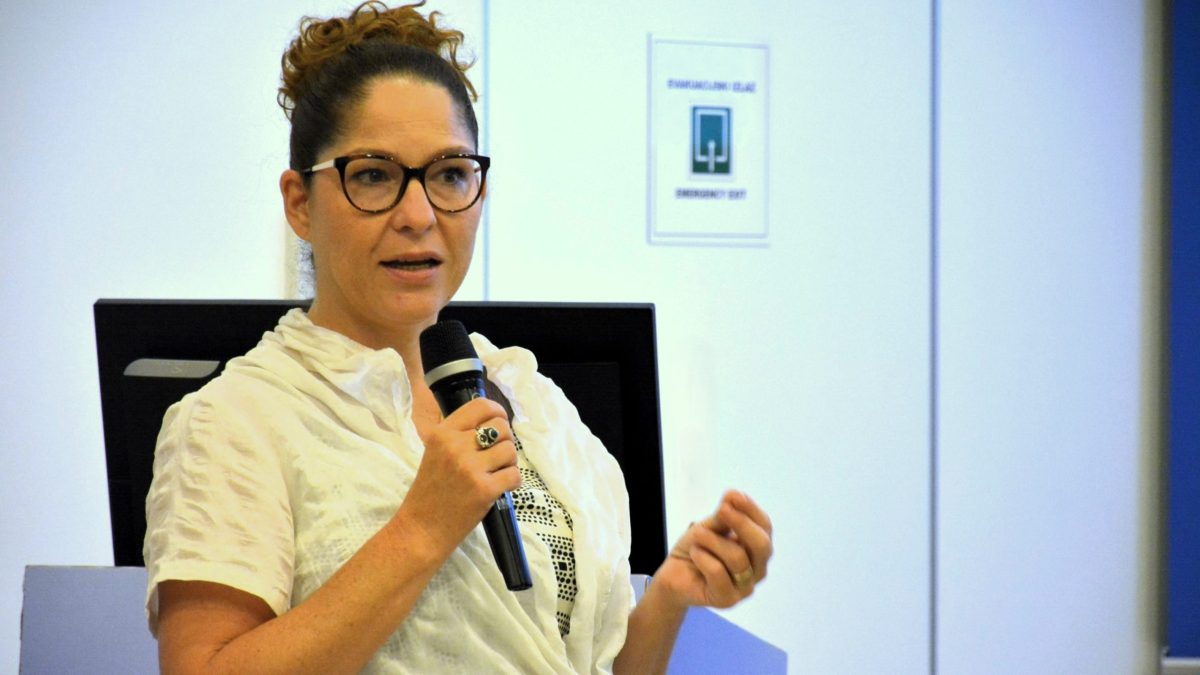On September 20, 2024, Ombudswoman Tena Šimonović Einwalter presented the Guide for Whistleblowers. The aim of the Guide is to improve understanding of the legal framework, increase the number and quality of whistleblower reports, and contribute to their protection.
Whistleblowers play an important role in combating corruption, and their reports contribute to the protection of the public interest, legal certainty, and human rights. However, achieving such progress requires the proper application of the Whistleblower Protection Act.
The Ombudswoman emphasized that whistleblowers are individuals who put the public interest before their own and are also considered human rights defenders. Over the past five years, the institution she heads has acted as the responsible authority for external reporting of irregularities in accordance with the Whistleblower Protection Act. Experience with reports so far has shown a need for clear information that is easily accessible and summarized in one place—hence the motivation behind preparing the Guide.
The Guide is intended primarily for whistleblowers themselves, but also for designated confidential persons within employers who receive reports, employers themselves, as well as lawyers, judges, providers of free legal aid, trade unions, and others. “This Guide is one of the ways we seek to contribute to the fight against corruption and in support of the public interest, the rule of law, and human rights,” the Ombudswoman concluded.
The presentation also highlighted positive developments since the first Whistleblower Protection Act entered into force in 2019, as well as current challenges.
Mladen Bručić Matic from the Ministry of Justice, Public Administration and Digital Transformation referenced legislation that, along with the Whistleblower Protection Act, forms the foundation of the fight against corruption—such as the Lobbying Act, which will soon enter into force for the first time. He agreed that education on whistleblower protection is of great importance, including raising awareness among both the general public and employers, who are subject to a range of obligations under the Whistleblower Protection Act.
Deputy Ombudswoman Dijana Kesonja noted that for whistleblowers, it is often crucial to know that their identity will not be revealed during the investigation of irregularities. In each case, the Ombudswoman identifies the authority responsible for investigating the specific irregularity—such as the State Attorney’s Office or the State Inspectorate—then forwards the report to them while protecting the whistleblower’s identity. One of the major challenges she highlighted was the financial exhaustion of whistleblowers and the need to enhance the support they receive in this regard, as well as the often insufficient speed of judicial proceedings. Confidential persons face a lack of knowledge about the legal framework and inadequate conditions in which they carry out this responsible task, while employers sometimes struggle to find individuals willing to take on this role, she concluded.
Sandra Šipka stated that, as of September 1, the Rehabilitation Centre for Stress and Trauma is responsible for providing emotional support to whistleblowers. They will draw on 30 years of experience working with highly vulnerable individuals. Whistleblowers who contact them will be able to express everything that troubles them without criticism or judgment, which is extremely important for those under significant pressure. They will be able to do this in person, by phone, or via video call. The first whistleblowers have yet to reach out, but the belief is that this will happen primarily once they are informed about this support by the Ombudswoman.
Associate Professor Maša Marochini Zrinski of the Faculty of Law in Rijeka provided an overview of the European Court of Human Rights’ case law related to freedom of expression in the context of whistleblowing. She reminded that Croatian courts at all levels, including the Constitutional Court, are required to apply the standards set in the case of Guja v. Moldova, such as whether the information disclosed was authentic, whether it was revealed in the public interest, whether there was a balance between public interest and harm to the employer, and whether there were alternative channels for disclosure.
The Guide is available for download at this link and includes answers to key questions, such as who is entitled to protection and how to exercise it, how to report irregularities, and what to pay special attention to during the process.
An assessment of the state of whistleblower protection can be found in the 2023 Annual Report of the Ombudswoman, in the chapter on Whistleblower Protection.


